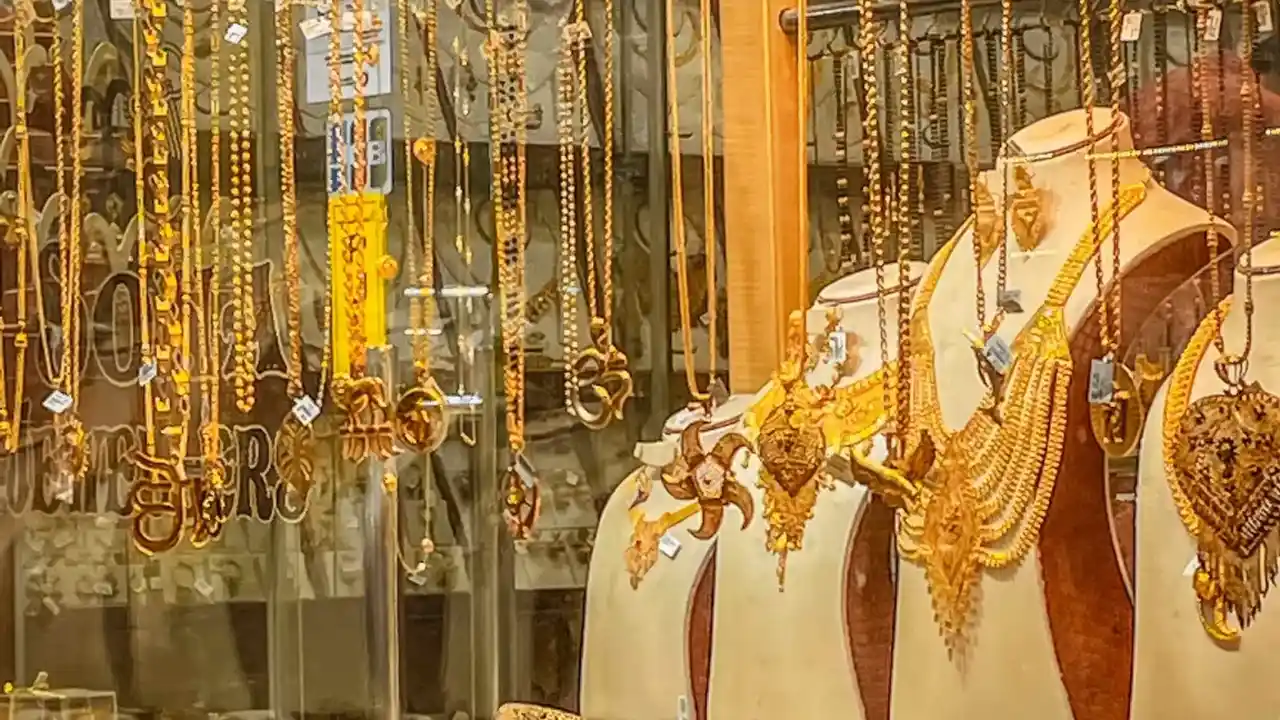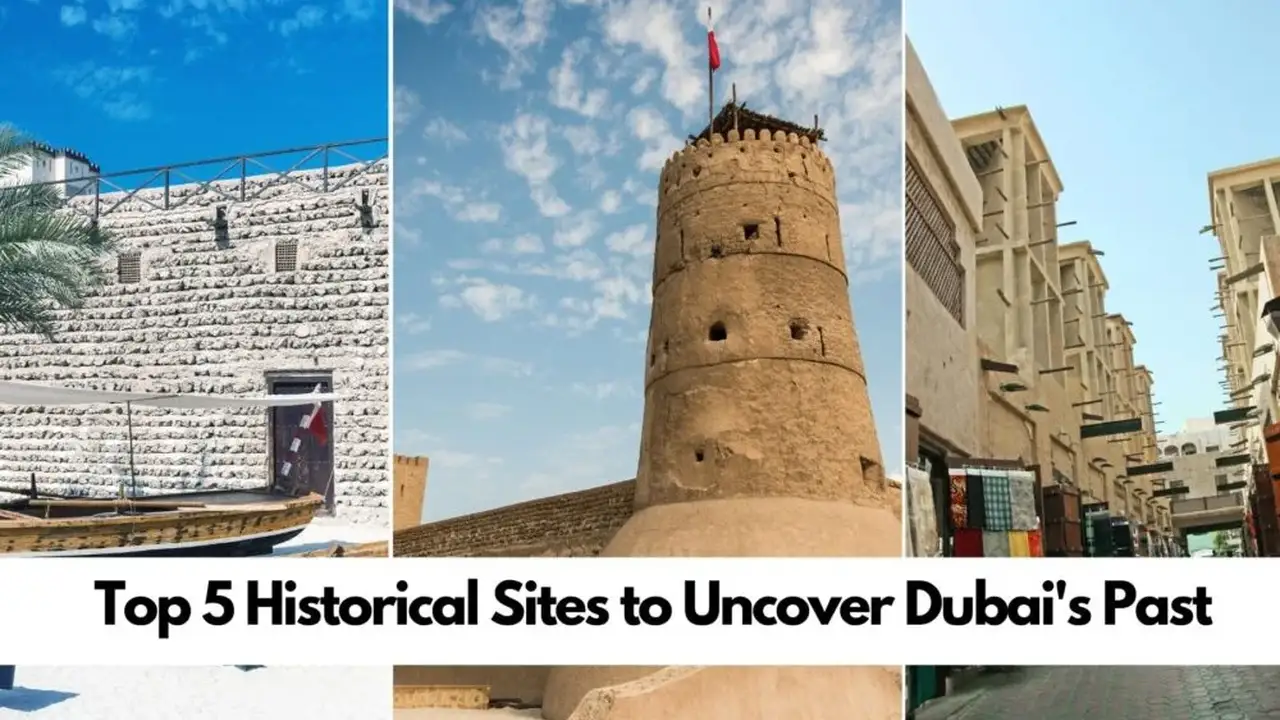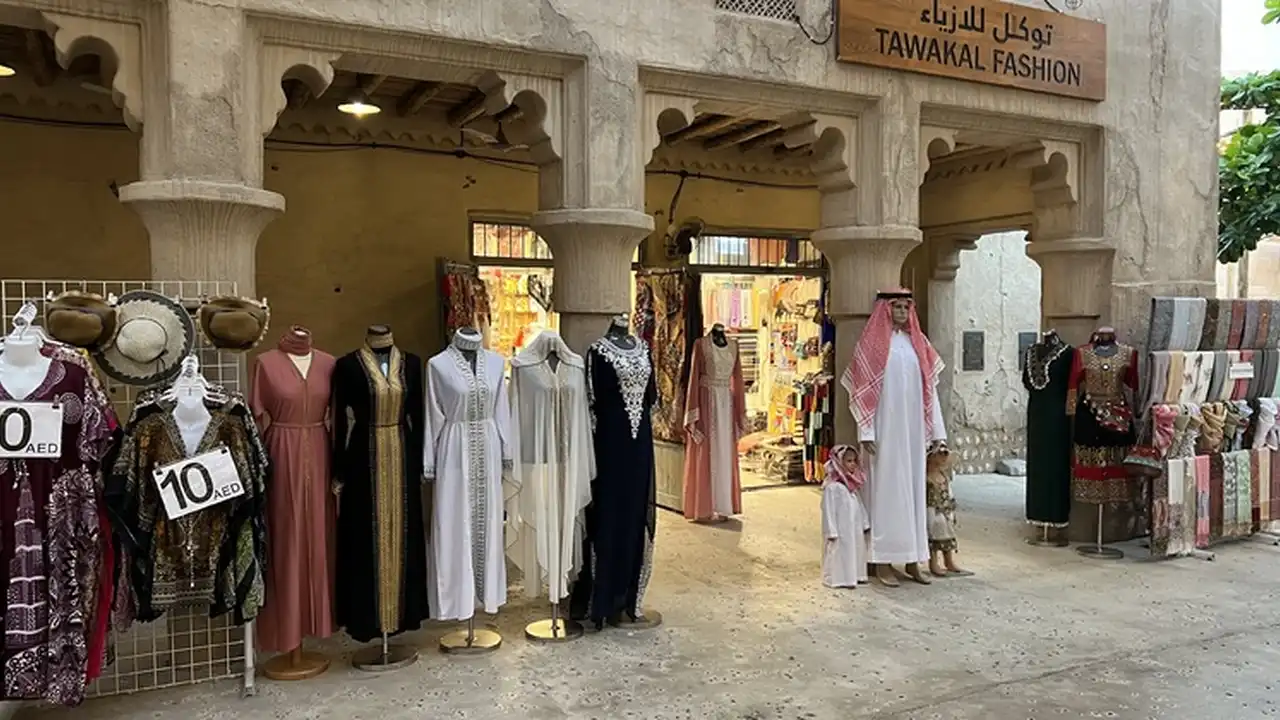Exploring Dubai's Gold Souk and Spice Souk A Shopper's Guide
Immerse yourself in Dubai's vibrant traditional markets. Discover the best of the Gold Souk and Spice Souk for unique treasures and cultural insights.

Exploring Dubai's Gold Souk and Spice Souk A Shopper's Guide
Unveiling the Allure of Dubai's Traditional Markets Gold Souk and Spice Souk
Welcome to the heart of Old Dubai, where the air is thick with the scent of exotic spices and the gleam of gold catches your eye at every turn. The Gold Souk and Spice Souk are not just markets; they are living, breathing testaments to Dubai's rich trading history and vibrant culture. For centuries, these bustling hubs have been the epicenters of commerce, drawing merchants and travelers from across the globe. Today, they offer a unique blend of tradition and modernity, providing an unparalleled shopping experience that's a world away from the city's gleaming malls. Whether you're a seasoned haggler or a curious first-timer, these souks promise an adventure for your senses and a treasure trove of memories.
Navigating the Golden Labyrinth Dubai Gold Souk Insights and Tips
The Dubai Gold Souk is legendary, a dazzling spectacle of gold, silver, and precious stones. It's one of the oldest and largest gold markets in the world, boasting hundreds of retailers showcasing an astonishing array of jewelry. From intricate traditional designs to contemporary pieces, you'll find everything from delicate necklaces to elaborate bridal sets. The sheer volume of gold on display is mind-boggling, and the competitive pricing, coupled with Dubai's tax-free status, makes it a prime destination for gold enthusiasts.
Understanding Gold Purity and Pricing in Dubai Gold Souk
Before you dive into the dazzling displays, it's crucial to understand how gold is priced. Gold in Dubai is sold by weight, based on the daily international gold rate, plus a making charge (workmanship). The purity of gold is measured in karats (K), with 24K being pure gold. However, 22K and 18K are more common for jewelry due to their durability. Always ask for the karatage and the current gold rate per gram. Don't be shy to ask for a breakdown of the price – the gold weight and the making charge should be clearly separated.
Haggling Like a Pro Your Guide to Gold Souk Bargaining
Haggling is an integral part of the souk experience. While the gold price itself is non-negotiable (it's based on the international market), the making charge is where you can negotiate. Start by offering 30-50% less than the initial quoted making charge and work your way up. Be polite but firm, and don't be afraid to walk away if you don't get a price you're comfortable with. Often, the vendor will call you back with a better offer. Remember, patience is key!
Spotlight on Popular Gold Souk Products and Their Uses
- 24K Gold Bars and Coins: These are popular for investment purposes. They come in various weights, from small grams to kilograms. While not for wearing, they are a solid asset. Prices fluctuate daily with the international gold market.
- 22K Gold Jewelry: This is the most common purity for traditional Middle Eastern and Indian jewelry. It's softer than 18K but has a richer color. You'll find stunning necklaces, bangles, earrings, and rings. A typical 22K gold necklace might range from AED 2,000 to AED 10,000+ depending on weight and design.
- 18K Gold Jewelry: Often used for more intricate designs and pieces that incorporate diamonds or other gemstones. It's more durable than 22K. Engagement rings and modern designs often use 18K gold. An 18K diamond ring could start from AED 1,500 and go much higher.
- Diamond Jewelry: Many shops also offer a wide selection of diamond jewelry, often set in 18K white or yellow gold. Prices vary wildly based on the 4 Cs (carat, cut, clarity, color) of the diamonds.
- Pearl Jewelry: Dubai has a historical connection to pearl diving, and you can find beautiful pearl jewelry, often set in gold or silver. A simple pearl necklace might be around AED 500-2000.
Comparing Gold Souk Shops Finding the Best Deals and Quality
With hundreds of shops, it can be overwhelming. Here's a quick comparison of some well-known names and what they offer:
- Joyalukkas: A very popular and reputable international brand with a large presence in the Gold Souk. Known for a wide variety of designs, good customer service, and transparent pricing. They often have promotions. Their prices are generally competitive, and they offer a good range of both traditional and contemporary designs.
- Malabar Gold & Diamonds: Another major player, offering a vast collection of gold, diamond, and precious gem jewelry. They are known for their certified diamonds and extensive bridal collections. Similar to Joyalukkas in terms of pricing and variety.
- Atlas Jewellery: A long-standing name in the Dubai gold market, offering a mix of traditional and modern designs. They are known for their craftsmanship and often have unique pieces. Prices are competitive, and they are open to negotiation on making charges.
- Smaller Independent Shops: Don't overlook the smaller, independent shops. While they might not have the same brand recognition, they often offer unique, handcrafted pieces and can be more flexible with pricing on making charges. It's worth exploring a few of these to find hidden gems.
Tip: Always check for the Dubai Assay Office hallmark on gold items, which guarantees the purity of the gold. Most reputable shops will have this.
Aromatic Wonders Dubai Spice Souk Exploring Flavors and Fragrances
Just a stone's throw from the Gold Souk, the Dubai Spice Souk is a sensory delight. The air is filled with the intoxicating aromas of frankincense, myrrh, saffron, and a myriad of other spices. This traditional market is a vibrant tapestry of colors and scents, offering an authentic glimpse into Dubai's historical trade routes. Here, you'll find everything from culinary spices to traditional medicines, dried fruits, nuts, and even incense.
Must-Buy Spices and Their Culinary Applications in Dubai Spice Souk
- Saffron: Often referred to as 'red gold,' Iranian saffron is highly prized for its intense flavor and vibrant color. It's used in rice dishes (like biryani), desserts, and teas. A gram of good quality saffron can range from AED 20-50, but prices vary based on grade.
- Frankincense (Luban): Not just a spice, but a fragrant resin used for incense, traditional medicine, and even chewing gum. It has a distinct woody, citrusy aroma. A small bag can be around AED 10-30.
- Myrrh: Another aromatic resin, similar to frankincense, used for incense and traditional remedies.
- Cardamom (Heel): A staple in Middle Eastern and Indian cuisine, used in coffee, teas, and savory dishes. Both green and black cardamom are available. A small bag might be AED 15-40.
- Dried Limes (Loami): Essential for many Gulf dishes, adding a sour, tangy flavor to stews and soups.
- Dates: Dubai is famous for its dates. You'll find a vast selection, from sweet Medjool dates to smaller, chewier varieties. They are perfect for snacking or as a natural sweetener. Prices vary widely depending on the type and quality, from AED 20-100+ per kg.
- Nuts and Dried Fruits: A wide array of almonds, cashews, pistachios, apricots, figs, and more. Great for healthy snacks or adding to recipes.
- Herbal Teas and Traditional Medicines: Many stalls offer a variety of herbal remedies and unique tea blends.
Bargaining Strategies for the Spice Souk Getting the Best Deals
Haggling is also expected here, though perhaps less intensely than in the Gold Souk. Vendors often start with inflated prices, so be prepared to negotiate. Aim for a 20-30% discount from the initial asking price. Buying in larger quantities can also give you more leverage. Don't be afraid to compare prices between different stalls before making a purchase.
Comparing Spice Souk Vendors Quality and Variety
Unlike the Gold Souk with its branded stores, the Spice Souk is more about individual vendors. Here's how to approach it:
- Look for Freshness: Check the color and aroma of the spices. Fresh spices will have a vibrant color and strong, distinct scent.
- Taste if Possible: Some vendors might offer a small taste of dried fruits or nuts.
- Observe Local Shoppers: If you see locals frequenting a particular stall, it's often a good sign of quality and fair pricing.
- Don't Settle for the First Offer: Walk around and get a feel for the prices before committing.
Beyond Shopping Cultural Immersion and Local Experiences
The souks are more than just places to shop; they are cultural experiences in themselves. Take your time to soak in the atmosphere, observe the daily life of the traders, and interact with the friendly locals. You'll often find opportunities to learn about traditional Emirati customs and practices.
Exploring the Abra Ride A Traditional Water Taxi Experience
A must-do when visiting the souks is taking an Abra ride across Dubai Creek. For just 1 AED, these traditional wooden boats offer a charming and authentic way to travel between the Deira and Bur Dubai sides of the creek. It's a fantastic way to see the city from a different perspective and truly feel the historical pulse of Dubai.
Dining Delights Near the Souks Authentic Emirati and Indian Cuisine
After all that shopping and exploring, you'll surely be hungry. The areas around the Gold and Spice Souks are brimming with small, authentic eateries. You can find delicious and affordable Emirati, Indian, and Pakistani cuisine. Look for local cafes serving traditional Arabic coffee and sweets, or try a shawarma from a street vendor. Don't miss the opportunity to try some fresh seafood from the nearby fish market.
Practical Tips for Your Souk Adventure Navigating Old Dubai
To make your visit to the Gold and Spice Souks as enjoyable as possible, keep these practical tips in mind:
- Best Time to Visit: The souks are best visited in the late afternoon or early evening when the weather is cooler and the atmosphere is most vibrant. They are generally open from 10 AM to 10 PM, with a break from 1 PM to 4 PM on Fridays.
- Getting There: The easiest way to reach the souks is by metro (Al Ras station for the Gold Souk, or take the metro to Al Ghubaiba and then an Abra across the creek). Taxis are also readily available.
- Dress Code: While there's no strict dress code, it's respectful to dress modestly, covering your shoulders and knees, especially in traditional areas.
- Stay Hydrated: Especially during warmer months, carry water with you.
- Beware of Scams: While generally safe, be wary of individuals approaching you on the street offering 'designer' goods or 'special' deals. Stick to the established shops.
- Cash is King: While many larger gold shops accept cards, smaller spice vendors and Abra rides often require cash. It's always good to have some local currency (AED) on hand.
- Enjoy the Experience: Don't rush! Take your time to explore, interact with the vendors, and soak in the unique atmosphere. It's an experience unlike any other in Dubai.
Your Souk Journey Awaits Discovering Dubai's Hidden Gems
Visiting the Gold Souk and Spice Souk is an essential part of any Dubai itinerary. It's where the city's past comes alive, offering a stark and beautiful contrast to its modern skyscrapers. You'll leave not just with unique purchases, but with a deeper appreciation for Dubai's rich heritage and the enduring spirit of its trading traditions. So, get ready to haggle, explore, and immerse yourself in the dazzling and aromatic wonders of Old Dubai!
:max_bytes(150000):strip_icc()/277019-baked-pork-chops-with-cream-of-mushroom-soup-DDMFS-beauty-4x3-BG-7505-5762b731cf30447d9cbbbbbf387beafa.jpg)






